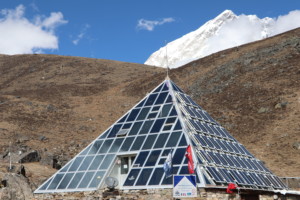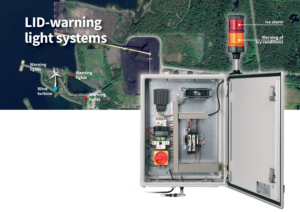Crucial meteorological observations in the heart of Sahel in Africa
UCadMet network provides meteorological observations in an area of the world where there are very few scientific observations despite the great importance of the meteorological phenomena that occur there. UCadMet is a joint meteorological network of The Complutense University of Madrid (UCM) and the Cheikh Anta Diop University of Dakar (UCAD) in the heart of Sahel region in Africa. Robust SATEL serial radio modems transmit data in harsh environmental conditions.

Meteorological phenomena in Sahel are connected to the global climate. African monsoon determines the wet season throughout the Sahel region and the genesis of atmospheric and ocean conditions that give rise to hurricanes cross the Atlantic to the Caribbean. The influence of weather and climate on the economy and development of this region is enormous in terms of agriculture, fisheries, and health. The importance of assessing the meteorological conditions and climate in this region of Africa is even higher in the context of climate change which causes an increase in extreme phenomena and a change in the normal behavior of temperature and precipitation variability.
SATELLINE-EASy radio modem has proven to be a sustainable investment
The UcadMet network has been designed, installed and managed by the SME interMET Sistemas based in Madrid in close collaboration with the research group TROPA-UCM. InterMet provides sensors, equipment and expertise to the UcadMet network.
One of the major technological challenges is the transmission of data from the measurement site to the data collection center, located downtown Dakar. Generally, the volume of information is important, and it is necessary to ensure the reliability and longevity of the equipment to make the investment sustainable. Robustness is an important aspect considering that the environmental conditions are harsh and the possibilities for preventive and corrective maintenance are very limited. To solve the challenge, interMET has opted for SATEL technology through its distributor in Spain, SATEL Iberia.
SATELLINE-EASy 869 radio modem transmits data from the data loggers to the data collection center. In one of the stations, the distance between transmitter and receiver is 7.5 km, without direct line-of-sight and the signal going through all the city of Dakar. Since its installation in 2014, the system has been operating with an excellent performance. Because the stations are powered by solar energy, data dumps have been programmed according to an adjusted schedule and turning off the radio when it is not used. A high gain directional antenna has been installed on both transmitter and receiver.







